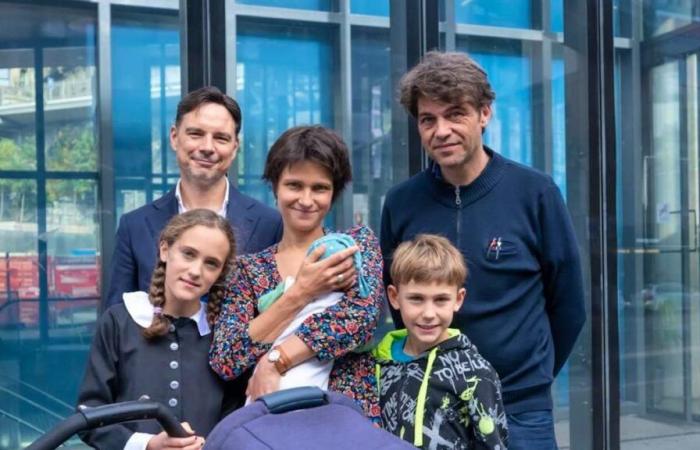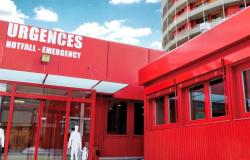For Marina, an activist in favor of public transport, what a strange symbol to now have an indelible link with the Rosiaz stop on line 7 of the TL! And it is certain that Antonio, a driver for fourteen years in Lausanne, will never forget this race.
“It’s my third child, I wasn’t too worried. When the pain started, the hospital told me to call back in an hour. I still needed to move, so we left to take the bus to get closer to the maternity ward. It’s probably proof that I already didn’t have all my wits about me, otherwise we would have taken a taxi,” Marina laughs. “I saw her arrive with a little stomach, but frankly, I didn’t suspect anything,” said Antonio, who started his day with 5:33 at the Valvert terminus. In fact, it’s because the baby was already very low!”
Indeed, barely a bus stop later and after a single contraction, Benjamin showed up without waiting to arrive at the maternity ward. “He screamed straight away, he had good colors, that reassured us all,” adds Michaël, the father, also a doctor. Who says that the passengers were very understanding and respectful, and immediately called emergency services, who came to pick up the little family directly at their stop. “We had to wait for them to cut the cord, we didn’t have our Swiss army knife,” he laughs.
With this arrival with fanfare, Benjamin, who is doing very well today, won a subscription until he turns 25, and enough to be accompanied free of charge until he is old enough to have to pay his ticket. To the memory of TL spokespersons, such an adventure has never happened before in Lausanne. However, a baby was born in the CHUV metro station in 2014, and in Bienne a little boy was also born on a bus in 2010.
“If it goes quickly, it’s going well”
Reports of particularly rapid deliveries are common, raising the question of hospital management. “Their response is standardized, it’s politics and resource management that want that,” reacts Claire Ajoubair, independent midwife. But we have to play it down: if it goes quickly, it’s generally because it’s going well. The main risk would then be hypothermia in the infant.” The specialist insists on the discussion that must take place between the mother and the caregiver: “If the solution proposed by the hospital does not seem realistic, it must be said. In preparation classes, it is crucial to teach mothers to listen to their bodies.”






